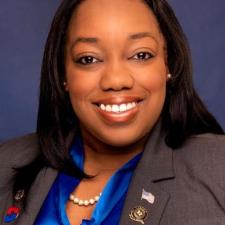Christal-Joy T. answered • 07/08/24
Patient & Experienced Stats & College Essay Coach w/ Proven Success
Lack of a voice for the poet can have serious and dire repercussions in a dictatorship. Poets frequently act as society's conscience by criticizing, motivating, and advocating for change through their writing. When a poet is voiceless, they could go through:
- Censorship: To further the narrative of the dictatorship, their work may be repressed, outlawed, or severely altered.
- Persecution: For voicing opposing opinions, poets may be subject to intimidation, detention, or even execution.
- Self-censorship: Poets may limit their own work, avoiding subjects that can draw unfavorable attention, out of fear of retaliation.
- Isolation: A poet who experiences silence may feel alone and helpless and lose their place in society.
- Cultural Stagnation: A dearth of cultural innovation may result from the silence of creative and intellectual voices.
- Democratic Governance: Free speech is protected by the law and governments answer to the people.
- Rule of Law: People's freedoms of speech are safeguarded by the law, which prevents them from being punished arbitrarily for their beliefs. A pluralistic society is one that promotes free discussion and debate and values differences in viewpoints.
- Independent Media: The free exchange of ideas and information is made possible by the ability of free and independent media to function without excessive government intervention.
- Legal Rights: A culture of free expression is supported by broader civil liberties like the right to petition the government and the right to assemble.
Fundamentally, human rights safeguards and wider democratic ideals are linked to freedom of expression because they ensure that people can express their opinions without fear of retaliation.
I hope this answer was helpful for you. If you have any additional questions, please let me know.
Take care,
Dr. C






